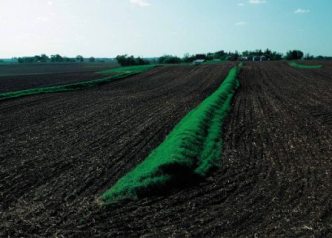Agriculture
and Watershed Management

Source:
www.dubuqueswcd.org/filterstrip.jpg
Project Overview
One of the most important conflicts in water policy in the United States and
elsewhere is the issue of non-point source pollution from agriculture.
One common approach to this conflict is some type of collaborative
watershed management institution that encourages farmers to monitor water on
their farms and adopt best management practices.
The success of watershed management depends on farmer cooperation with
the various watershed management activities.
The Russell Sage grant posted below examines the interaction between
trust, beliefs, and institutions as motivators of farmer participation.
There are also links to two papers that report results of the pilot study
in the Middle Suwannee River in Florida. An
expansion of the research project to California is currently underway, and is
described in more detail below.
California Water Quality
and Policy: A Survey of Agriculture’s Opinions
The California Water Quality survey is being designed to assess farmers’
opinions of water quality and policy issues in the Northern Sacramento River
watershed. In particular, the
survey focuses on farmers’ participation in the Coalition Groups associated
with the new Agricultural Waivers created by the Central Valley Regional Water
Quality Control Board. The new
Waiver policy requires individual farmers to either join a Coalition Group or
apply for an Individual Waste Discharge permit.
The Coalition Groups must submit a water quality management plan that
includes a monitoring program and strategies for addressing any non-point source
pollution problems through the implementation of agricultural best management
practices and other pollution control mechanisms.
The Coalition Groups are an attempt to use the concept of “collaborative
policy” to address non-point source pollution in the Sacramento River Valley.
The success of Coalition Groups depends on farmers’ participation and
knowledge, and the survey is designed to identify the most important factors
affecting farmers’ decisions about the Coalition Groups.
The “Invitation to Collaborative Research” available at the link
below summarizes many details of the study.
The survey is scheduled for Winter 2004.
An
invitation for Collaborative Research, October 27, 2003

